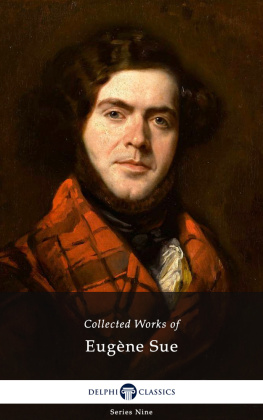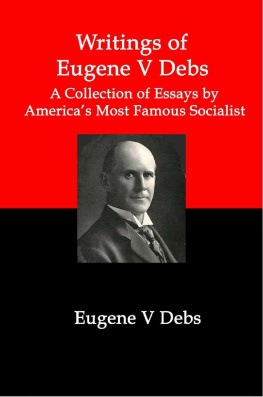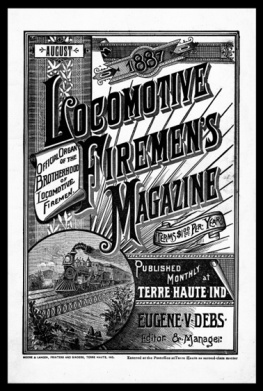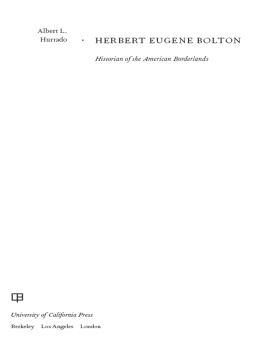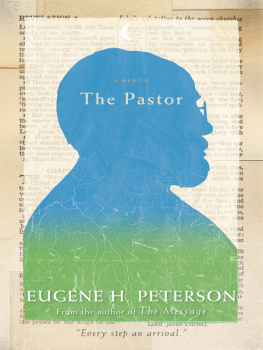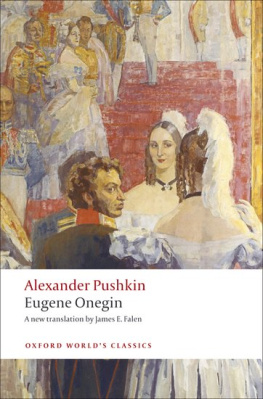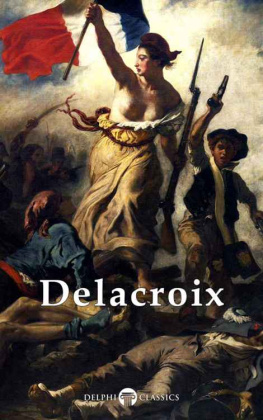Eugène Sue - Collected Works of Eugène Sue
Here you can read online Eugène Sue - Collected Works of Eugène Sue full text of the book (entire story) in english for free. Download pdf and epub, get meaning, cover and reviews about this ebook. year: 2018, publisher: Delphi Classics, genre: Art. Description of the work, (preface) as well as reviews are available. Best literature library LitArk.com created for fans of good reading and offers a wide selection of genres:
Romance novel
Science fiction
Adventure
Detective
Science
History
Home and family
Prose
Art
Politics
Computer
Non-fiction
Religion
Business
Children
Humor
Choose a favorite category and find really read worthwhile books. Enjoy immersion in the world of imagination, feel the emotions of the characters or learn something new for yourself, make an fascinating discovery.
Collected Works of Eugène Sue: summary, description and annotation
We offer to read an annotation, description, summary or preface (depends on what the author of the book "Collected Works of Eugène Sue" wrote himself). If you haven't found the necessary information about the book — write in the comments, we will try to find it.
Collected Works of Eugène Sue — read online for free the complete book (whole text) full work
Below is the text of the book, divided by pages. System saving the place of the last page read, allows you to conveniently read the book "Collected Works of Eugène Sue" online for free, without having to search again every time where you left off. Put a bookmark, and you can go to the page where you finished reading at any time.
Font size:
Interval:
Bookmark:

The Collected Works of
EUGNE SUE
(1804-1857)

Contents

Delphi Classics 2018
Version 1


Browse our Main Series

Browse our Ancient Classics

Browse our Poets

Browse our Art eBooks

Browse our Classical Music series

The Collected Works of
EUGNE SUE

with introductions by Gill Rossini
www.gillrossini.com
By Delphi Classics, 2018
Collected Works of Eugne Sue

First published in the United Kingdom in 2018 by Delphi Classics.
Delphi Classics, 2018.
All rights reserved. No part of this publication may be reproduced, stored in a retrieval system, or transmitted, in any form or by any means, without the prior permission in writing of the publisher, nor be otherwise circulated in any form other than that in which it is published.
ISBN: 978 1 78877 921 0
Delphi Classics
is an imprint of
Delphi Publishing Ltd
Hastings, East Sussex
United Kingdom
Contact: sales@delphiclassics.com

www.delphiclassics.com
Parts Edition Now Available!

Love reading Eugne Sue ?
Did you know you can now purchase the Delphi Classics Parts Edition of this author and enjoy all the novels, plays, non-fiction books and other works as individual eBooks? Now, you can select and read individual novels etc. and know precisely where you are in an eBook. You will also be able to manage space better on your eReading devices.

The Parts Edition is only available direct from the Delphi Classics website.
For more information about this exciting new format and to try free Parts Edition downloads , please visit this link .
Interested in French literature?
Then youll love these eBooks

Discover a wealth of French art, literature and philosophy at Delphi Classics.
Explore French Themed eBooks

Place du Chatelet, Paris by Etienne Bouhot, 1810 Sue was born in Paris in 1804, the son of a distinguished surgeon in Napoleons army, Jean-Joseph Sue, and is said to have had the Empress Josphine for his godmother.

Portrait of Eugne Sue by Franois-Gabriel Lpaulle, 1835

Anonymous 1845 translation, published by Chapman and Hall
Illustrated by Mercier, Bicknell, Poiteau and Adrian Marcel
Published in French as Les Mystres de Paris , this novel began as a long, 150-part serial, appearing in the conservative periodical Journal des Dbats . It appeared from 19 June 1842 until 15 October 1843 and was one of the first serial novels to be published in France. Les Mystres de Paris was also produced as a ten volume set and appeared in many other abridged and translated formats. A contemporary encyclopaedia claimed Sue was encouraged to write the novel after noting the great success of Frdric Soulis 1842 novel, Memoires du Diable ; however, Sues reasons for embarking on this project were primarily pragmatic the inheritance he had received from his father in 1830 had all been spent and he needed a steady source of income. In contrast to his previous endeavours surgeons assistant and author of nautical and adventure novels the series was an immediate success and may have single-handedly increased the periodicals circulation, even saving it from bankruptcy.
As was common practice at the time, each instalment was placed on the front page, in the bottom quarter of the sheet. The novel is classed as a city mystery, a genre many authors imitated, including Emile Zola ( Les Mystres de Marseille ) and George Lippard ( The Quaker City ). The complexities of plot and the many characters have also been credited with inspiring Victor Hugo to write Les Misrables it was Hugo that gave Sue the accolade of The Dickens of Paris. However, some commentators have detected in the plot and choice of scenes elements from previous Gothic fiction and other authors had already explored the theme of social realism in their stories George Sand, Honor de Balzac and Restif de la Bretonne. Nevertheless, the scale and complexity of Sues work brought together many more threads than theirs.
Present day readers may see in the hero, Rodolphe, a prototype for the avenger or justice figure hero in modern thrillers, as Rodolphe walks the squalid streets of Paris seeking a raw justice for those that transgress his own moral code. The grand sweep of the novel, with its large cast of characters from all walks of society, is essentially a struggle between good and evil, but although well intentioned, it did not appeal to the intellectuals of the day Karl Marx (writing in The Holy Family in 1845) claimed it was more a pastiche of the misery of the poor people that Sue intended to portray sympathetically and that the characters were mere caricatures. By contrast, others saw the story as dangerously socialist in tone and partly responsible for the whipping up of dissent prior to the 1848 revolution.
However, such criticisms were very much a minority and the thousands that awaited each new episode in the Journal were gripped by the length and complexity of the tale. The novel has been put forward for the accolade of the most successful novel of all time, with a vast readership that cannot even be quantified apart from those who bought the journal each time, the instalments were read aloud in cafs and village squares, to those who could not read or afford the journal and it was discussed on a daily basis in the same manner as people would discuss a modern television soap opera today. Apart from financial security (in 1980 prices, the story earned Sue approximately $100,000), the story catapulted Sue to the position of expert on the genre of the roman-feuilleton (newspaper serial). From the 1850s, it has been suggested periodically that Sue had started out writing a story focussing on the squalid nature of working class life in Paris, but his working class fans wrote him so many letters urging him to emphasise the nobility of the working man that he soon changed tack. Now he made the peasant character people of the highest moral calibre, thus almost accidentally becoming a champion of the people. Some modern academics have seen the story as an early champion of laissez-faire bourgeois liberalism sometimes scathingly referred to as bleeding heart liberalism. Possibly the truth is somewhere in the middle; Sue never challenges the existing social structure, but does try to encourage the middle classes to use their power and income to help and support those less fortunate, noblesse oblige, rather than revolution; yet the journal Le Courrier de lEurope , in an article about Sue and his work, stated of his portrayal of Chorineur: there is not a more profound study which exposes more wisely the vice of existing society.
Next pageFont size:
Interval:
Bookmark:
Similar books «Collected Works of Eugène Sue»
Look at similar books to Collected Works of Eugène Sue. We have selected literature similar in name and meaning in the hope of providing readers with more options to find new, interesting, not yet read works.
Discussion, reviews of the book Collected Works of Eugène Sue and just readers' own opinions. Leave your comments, write what you think about the work, its meaning or the main characters. Specify what exactly you liked and what you didn't like, and why you think so.

